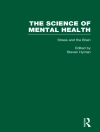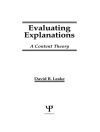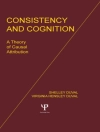This groundbreaking book gives clinicians a new set of tools for helping people overcome binge-eating disorder and bulimia. It presents an adaptation of dialectical behavior therapy (DBT) developed expressly for this population. The treatment is unique in approaching disordered eating as a problem of emotional dysregulation. Featuring vivid case examples and 32 reproducible handouts and forms, the book shows how to put an end to binge eating and purging by teaching clients more adaptive ways to manage painful emotions. Step-by-step guidelines are provided for implementing DBT skills training in mindfulness, emotion regulation, and distress tolerance, including a specially tailored skill, mindful eating. Purchasers get access to a Web page where they can download and print the reproducible handouts and forms in a convenient 8 1/2′ x 11′ size.
See also the related self-help guide, The DBT Solution for Emotional Eating, by Debra L. Safer, Sarah Adler, and Philip C. Masson, ideal for client recommendation.
Tabela de Conteúdo
Introduction
1. Binge-Eating Disorder and Bulimia Nervosa: Why Dialectical Behavior Therapy?
2. Orientation for Therapists
3. The Pretreatment Stage: The Pretreatment Interview and Introductory Sessions
4. Mindfulness Core Skills
5. Emotion Regulation Skills
6. Distress Tolerance Skills
7. Final Sessions: Review and Relapse Prevention
8. Illustrative Case Examples
9. Future Directions
Appendix. Information for Researchers
Sobre o autor
Debra L. Safer, MD, ABPN, is Assistant Professor in the Department of Psychiatry and Behavioral Sciences at Stanford University Medical Center. Dr. Safer attended medical school at the University of California, San Francisco, followed by a residency in psychiatry at Stanford University. Her postdoctoral fellowship was also at Stanford, where she worked closely with W. Stewart Agras, MD, and his eating disorders research team. Dr. Safer’s research and clinical work focus on treating eating disorders in adults and adolescents utilizing DBT and other empirically validated treatments.
Christy F. Telch, Ph D, is in private practice in Palo Alto, California. Dr. Telch obtained her Ph D in counseling psychology from Stanford University. She joined Stanford’s Department of Psychiatry and Behavioral Sciences, where she established a national reputation for her research on eating disorders. In 1997, Dr. Telch received a grant from the National Institute of Mental Health to adapt DBT for the treatment of binge-eating disorder. Her subsequent research and treatment manual, Emotion Regulation Skills Training Treatment for Binge Eating Disorder, are the basis for this book.
Eunice Y. Chen, Ph D, is Assistant Professor in the Department of Psychiatry and Behavioral Neurosciences at the University of Chicago, where she runs a DBT program for adults with eating disorders. Dr. Chen received her Ph D in clinical psychology from the University of Sydney, Australia. She subsequently completed postdoctoral fellowships at Yale University and at the University of Washington, with Marsha M. Linehan, Ph D.












